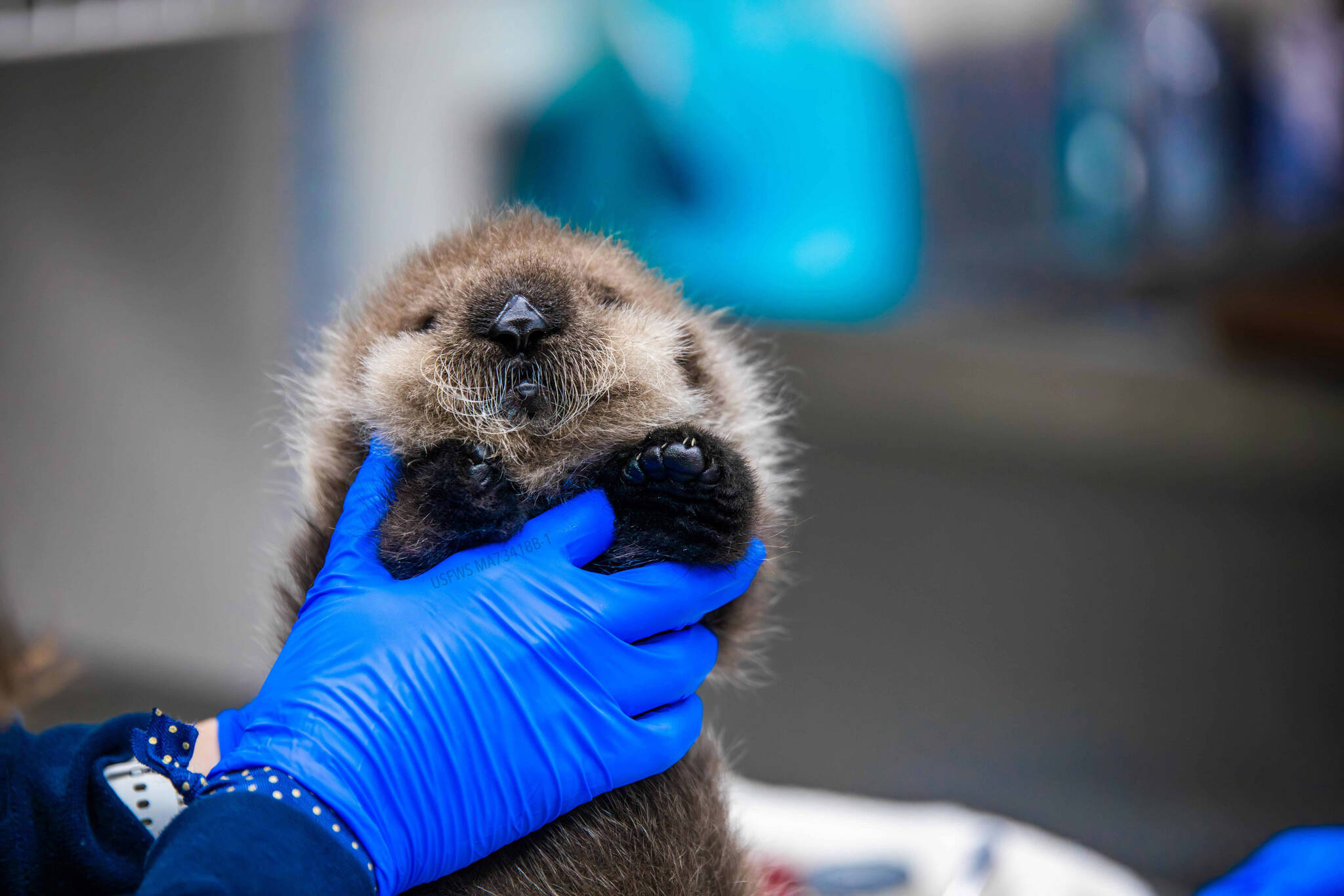A newborn northern sea otter pup was rescued near Homer earlier this month and admitted to the Alaska SeaLife Center’s Wildlife Response Program after her mother was killed by orca whales. She’s the second northern sea otter pup to be rescued in less than a week, following another pup rescued in Kenai last week.
A news release from the center calls the rescue “unusually dramatic.” Wildlife response rescues often describe animals found stranded without their parents, but in this case, the attack was witnessed by Natalie Hunter, a lab technician and member of the center’s wildlife response team. She had been out fishing and happened to see the otters attacked and later rescued the stranded pup.
While fishing, Hunter’s group saw two orcas, which the release said are “a pod of transient orcas known to predate on mammals.” They also saw the mother otter, who didn’t dive away from the whales and who was carrying the pup.
Both the mother and the pup were launched from the water by tail slaps from the orcas, and the two were separated. The release says the orcas focused their attention on the mother until she failed to resurface. The orcas then left the area.
Video provided by the center shows the group on the boat realizing that the tiny pup was still floating at the surface, crying out.
After waiting to make sure the orcas weren’t returning and that the mother would not resurface, Hunter and the group called the center’s wildlife response hotline. According to the release, Hunter is usually one of the people taking calls at that number.
“It was weird to be on the other side of the wildlife response hotline. It wasn’t someone calling me to report an animal in need. It was the other way around,” said Hunter in the release. “My brain was in wildlife response mode during the entire incident, thinking we, unfortunately, may have an otter pup rescue on our hands. It wasn’t until the entire event ended, the wild orcas had left the area, and the pup started crying out for its mother that I knew we had to think about the next move.”
Hunter’s friends on the boat also had wildlife response experience, the release says, and after they got the clear from the Fish and Wildlife Service to respond, they were able both to retrieve the otter from the water and provide care until she could be treated by the center’s response team.
Hunter said that her cries were “gurgly,” and that her fur wasn’t repelling water “like it should have been.”
The group brought the pup to shore and drove it around two hours up the Sterling Highway to meet the response team.
The release said the pup was found to be fatigued and hungry, but otherwise healthy. Center staff found that the animal still had a fresh umbilical cord, suggesting she was only a day, “possibly even hours,” old.
Northern sea otter pups require constant care and attention from their mothers for the first six months of their life, the release said. Both pups currently receiving care at the center will see constant care from the team.
To report an injured or stranded marine animal in Alaska, call the 24-hour Stranded Marine Animal Hotline at 1-888-744-7325.
For more information about the Alaska SeaLife Center and for continuing updates about the wildlife response patients, visit facebook.com/AlaskaSeaLifeCenter.


